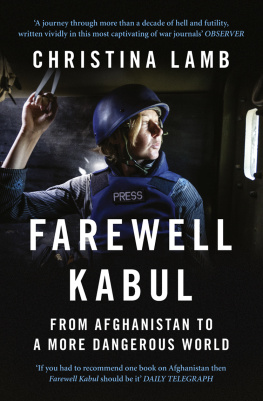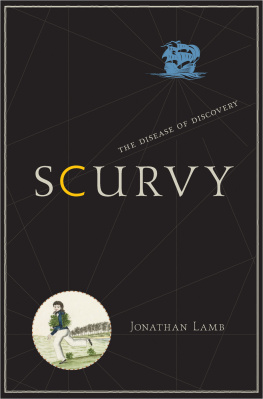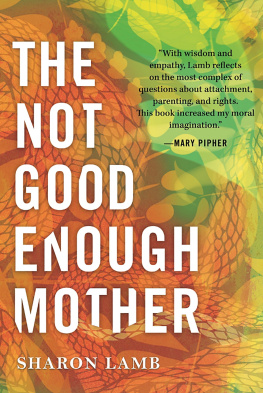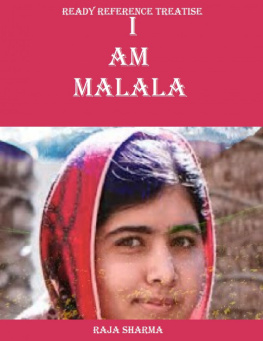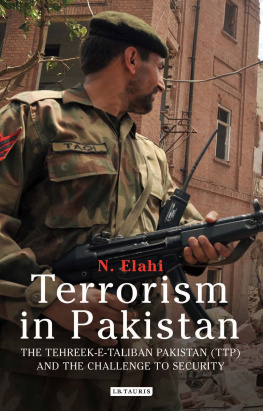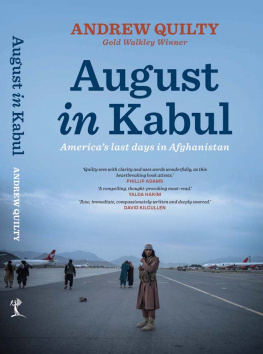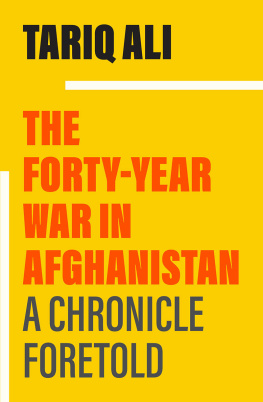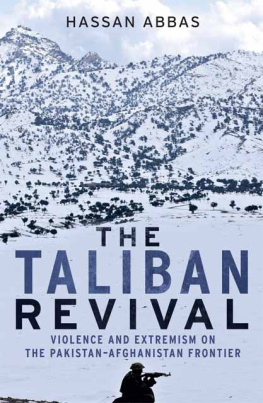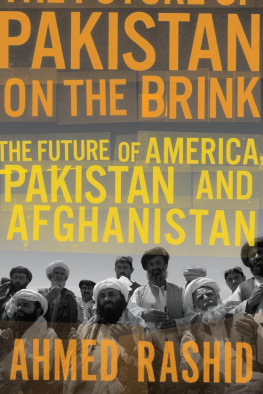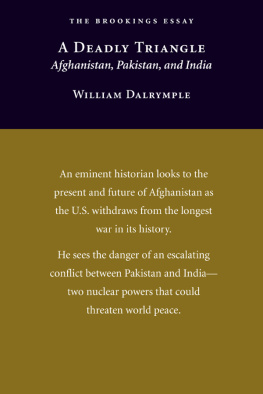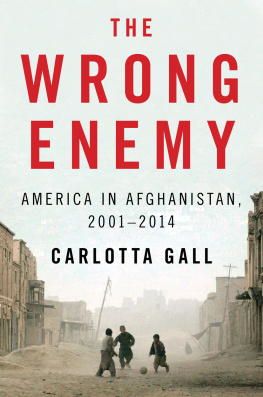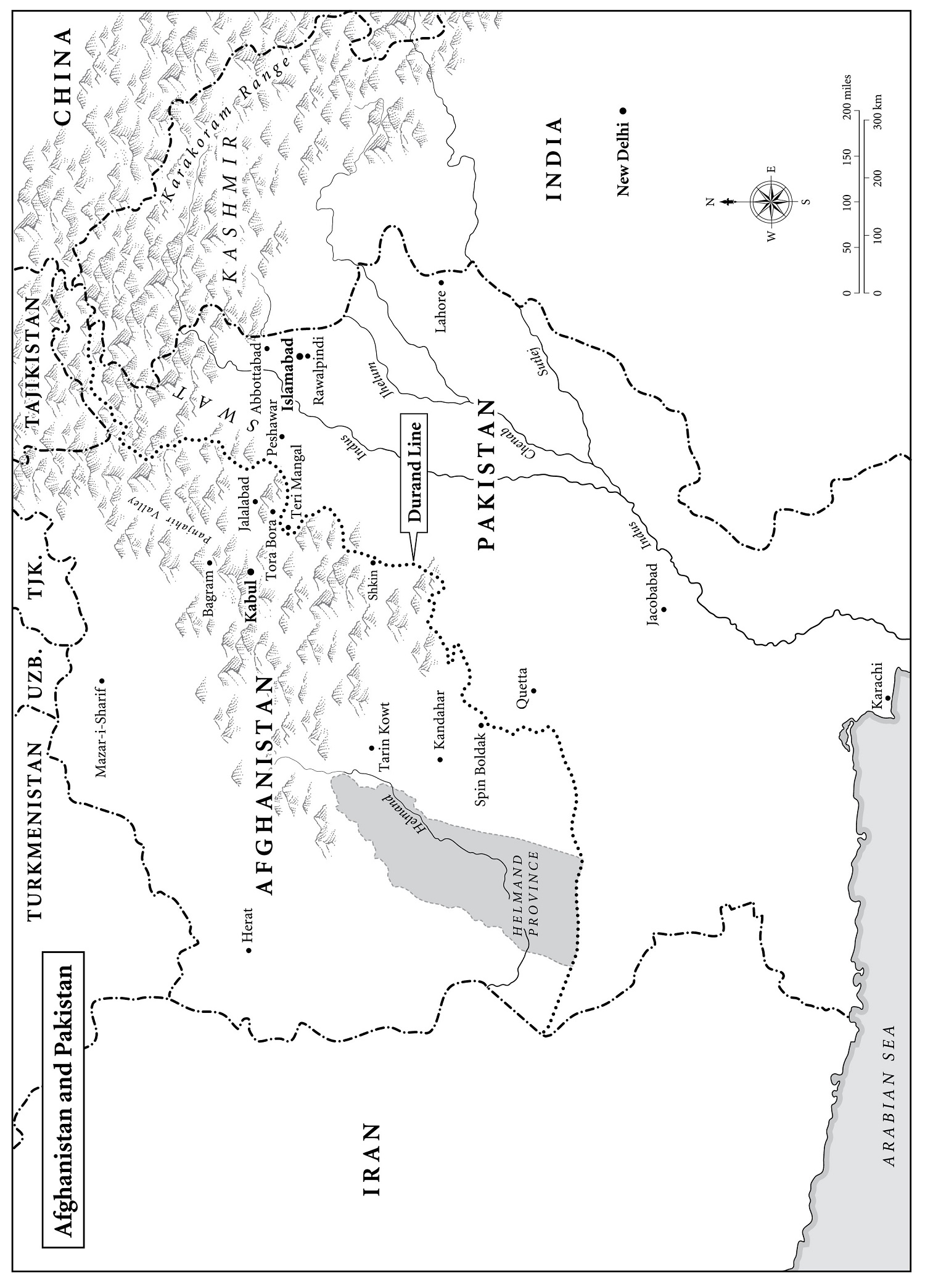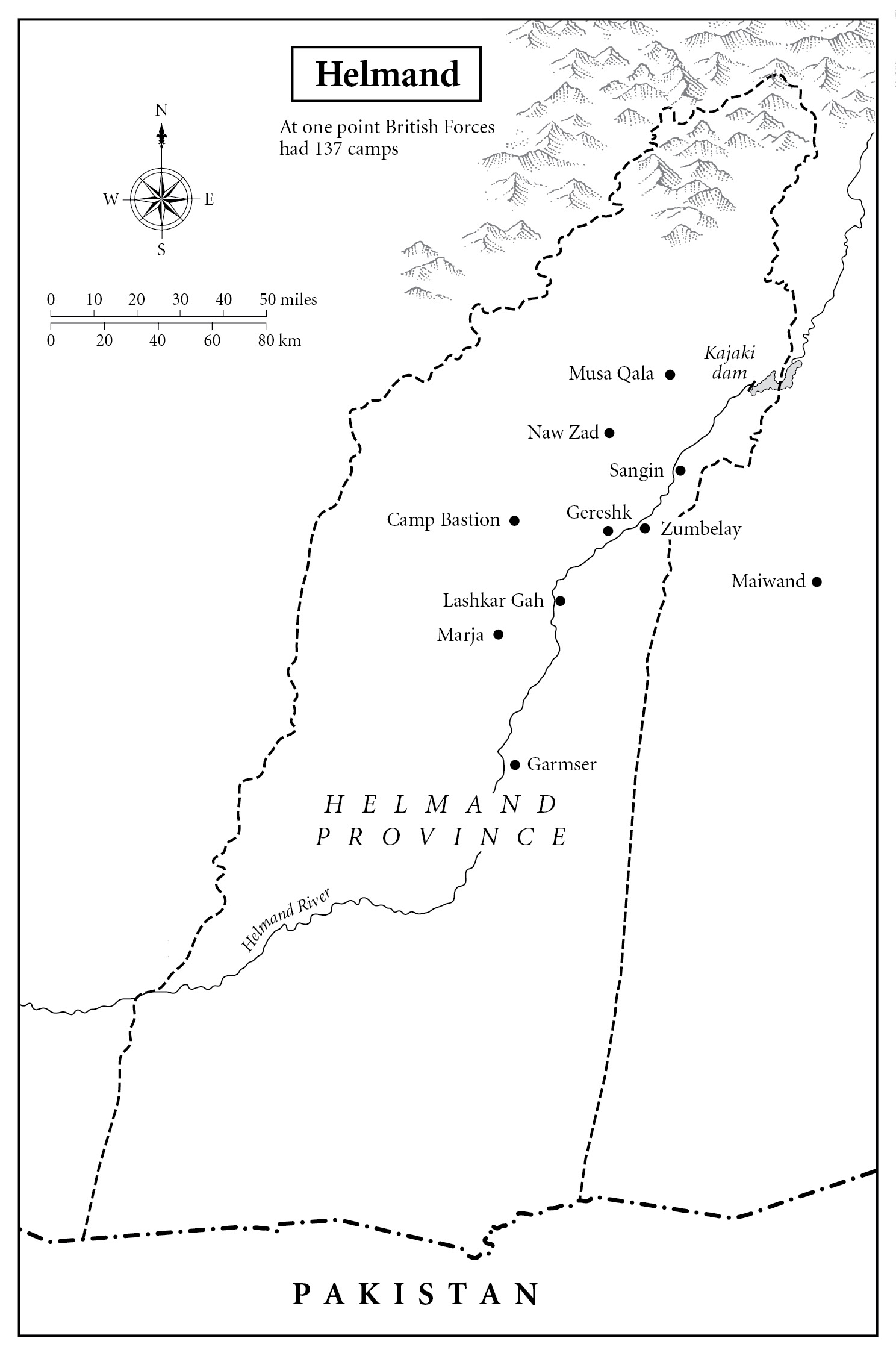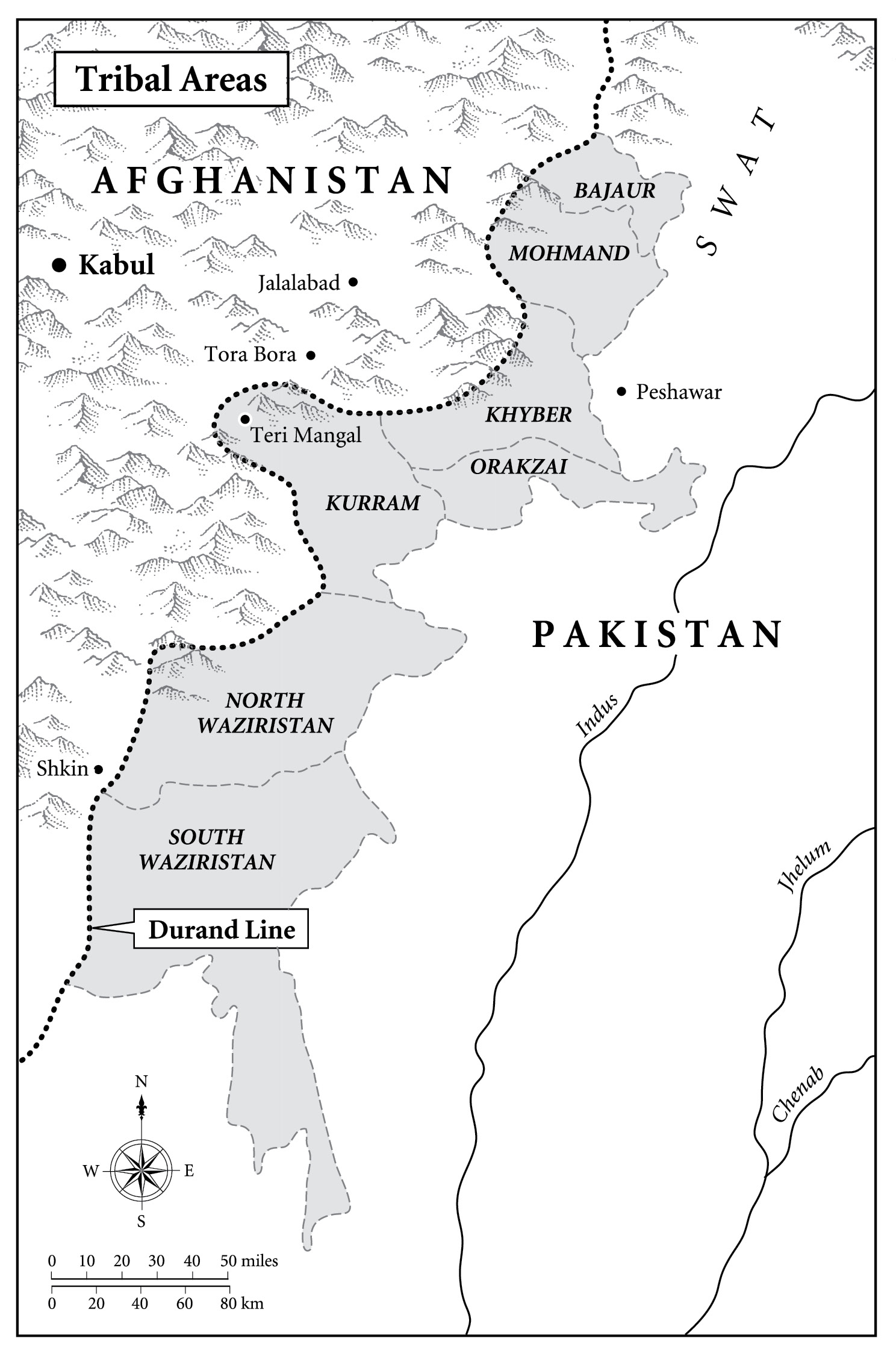It is fatal to enter any war without the will to win it.
Camp Bastion, Helmand, 2627 October 2014
Ladies and gentlemen, please take your seats for the End of Operations Ceremony! The American voice boomed enthusiastically over the speakers as if it were the drum roll for a sporting event.
Rows of grey fold-up chairs had been arranged facing a large blast wall painted with murals marking each of the last few commands in Helmand. In front of the wall two detachments of US Marines and British troops stood to attention, flanked on either side by Afghan soldiers, who had been instructed beforehand not to hold hands. Above flew four flags the Union Jack, the Stars and Stripes, and those of NATO and Afghanistan.
A padre read some Koranic verses, then three American generals took turns at the plinth to speak. One of them was the last commander in Helmand, Brigadier General D.D. Yoo of the US Marines, a man of Napoleonic stature both in height and personality who took the mike from the lectern to strut in front of the audience as if about to burst into song.
Phrases from the speakers, each as determinedly upbeat as the announcer, swam in the hot air like speech bubbles. No one spoke of defeat, or retreat, or withdrawal in the face of an intransigent enemy, or of publics and politicians back home who could take no more flag-draped coffins.
This transfer is a sign of progress, said Brigadier General Yoo. It is not about the coalition. It is really about the Afghans and what they have achieved over the last thirteen years.
Helmand would now be under control of Afghan forces, commanded by Major General Sayed Malouk. We are ready, Malouk insisted, even though he didnt quite look me in the eye as he said it. He had already lost almost eight hundred men that fighting season, and had himself narrowly escaped a roadside bomb in Sangin.
No British officer spoke, and Britains eight-year role in Helmand garnered barely a mention, which seemed odd, for this had been the countrys longest war in modern times, and its hardest fighting for more than half a century.
The hot sun beat down and guests swigged from bottles of mineral water as God Save the Queen and The Star-Spangled Banner were played and the flags were lowered. The Union Jack was carefully folded, and handed to Brigadier Rob Thomson, the last British commander. Only the Afghan flag was left fluttering as Camp Bastion came under Afghan command, and Britains fourth war in Afghanistan officially came to an end.
Guests were taken into a cabin where a banquet lunch of smoked salmon, slow-cooked beef and chocolate fudge cake had been specially flown in. The genial Afghan army chief General Sher Mohammad Karimi presented Brigadier General Yoo with a commemorative certificate and a carpet, and both sides took souvenir photographs. It all seemed surreal.
I felt tears stinging my face. Four hundred and fifty-three British soldiers had been lost in Afghanistan, of whom 404 died in Helmand, many of them young enough to be my son. Hundreds more had lost limbs to roadside bombs or been mentally scarred for life. Tens of thousands of Afghans had lost relatives or homes, and I had met many Helmandis living as refugees in a camp in Kabul, begging for scraps of dry bread and meat fat, and burying children in the mornings who had frozen to death overnight in the winter cold.
Watching the flag come down felt like the end of everything. This fierce, turtle-shaped country had been part of my entire adult life, longer than any relationship or job. It was twenty-seven years since Id first come to Afghanistan as a young wannabe foreign correspondent, crossing the Hindu Kush with the mujaheddin fighting the Russians, and falling unequivocally in love with this land of pomegranates and war. Id had narrow escapes in muddy fields nearby, both with those mujaheddin who went on to become Taliban, and then with British soldiers fighting those Taliban. My first big assignment was covering the Soviet withdrawal in 1989, and never in my wildest dreams had I imagined I would be back a quarter of a century later, covering my own countrys ignominious departure. Just as after the Russians had gone, everyone had lost interest in Afghanistan, now Western troops were leaving I wondered if anyone would care.
The Union Jack at Bastion was the last to come down over Helmand. Once there had been 137 British bases across the province, but over the last year these had all been bulldozed one by one and turned back to desert, home again only to scorpions and camel spiders.
Some, in places like Sangin, Musa Qala and Naw Zad, had become unlikely household names back in Britain. Many were small, primitive FOBs Forward Operating Bases: like Camp Inkerman, which was known to everyone as Camp Incoming because it was so frequently hit. Conditions in these places were described as austere, which meant showers were hot bags once a week, the dust so deep that you felt it sucking at your boots, and the toilet a stinking pit that was targeted so often it was known as Tali-alley.
Bastion was where it had all started. When it opened in 2006 it was a gritty, grey, sprawling place on the edge of the Dasht-e-Margo, or Desert of Death, that had previously been used for camel-grazing, according to the agreement signed by the Defence Secretary John Reid. Over the years, like the war, it had been expanded and expanded to become Britains biggest overseas camp since World War II, the first billion-pound base. At its height it housed more than 30,000 people with a coffee bar, Pizza Hut, Kentucky Fried Chicken, three gyms, state-of-the-art hospital and even a water-bottling plant producing 15,000 gallons of Bastion Water a day. The camps three canteens had served a hundred million meals since 2006, getting through 66,500 eggs a week and 6,000 tubs of ice cream, all flown in. Its airfield saw so many flights a day six or seven hundred, from jumbo jets to unmanned Reapers that it had become Britains third busiest airport.

